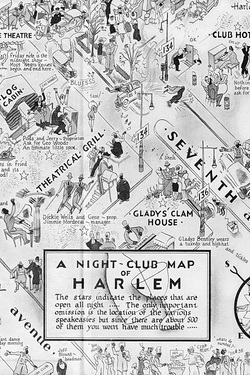A couple of days before I presented my 8th graders with material about Harlem itself, I asked them if they had ever been frustrated at not being able to communicate something important - either because someone wouldn't listen to them, or because they couldn't find a way to get their message across. This was something that they could pretty much all relate to.
As a homework assignment, I had them fill out a worksheet where they speculated on what kind of art they would make if time, money and talent weren't a restriction. Then I had them call my GoogleVoice account and tell me about it.
Here's a compilation of their ideas:

 RSS Feed
RSS Feed